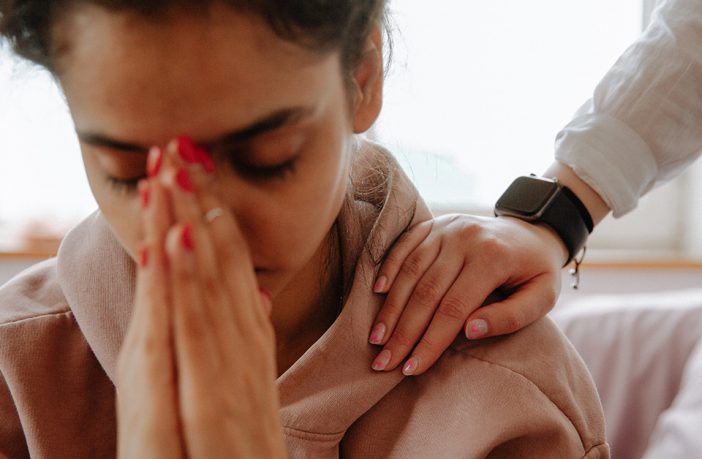BY FARIHA ESHRAT, MBBS
With the many new stressors in our lives, focusing on our mental health is becoming increasingly important. In these days and in the months to come, let us increase our understanding of mental health to be better prepared to tackle the world.
According to the United Nations (UN), ‘mental health is one of the most neglected areas of health’. With our increasing fears about health, social gatherings, familial stress and finances, the pandemic has created a need for us to better care for our emotional health.
The UN and the World Health Organization (WHO) have recommended applying a whole-of-society approach to promote, protect, and care for mental health. They’ve also recommended increasing the availability of psychosocial support to reduce loneliness within communities and if needed, even utilize more psychiatry consults to identify and treat mental health concerns as they come to light.
The WHO has placed the following reminders on Google for searches related to mental health:
- Be KIND to your mind.
- PAUSE. Breathe. Reflect.
- KEEP to a healthy routine.
- CONNECT with others.
- BE KIND to yourself and others.
- REACH OUT for help if you need it.
These reminders are a perfect summary to help you notice changes in your emotional energy as it waxes and wanes during these worrying times. They also remind us to focus on components of our emotional well-being which are in our control, such as choosing to maintain a routine to help ground your day as we spend most of our time at home, choosing to be kind as a way to care for those around us, and choosing to reach out and connect when we feel the need to be taken care of.
With the rise of insomnia, the app CBT-i coach created by the US Department of Veterans Affairs has gained popularity in the medical community. Even without the app, just maintaining healthy schedules, winding down your daily activities at night and practicing sleep hygiene is a valuable way to improve emotional and physical health.
In the following interview, we asked our burning mental health questions to Dr. Maha Faqi, a long term Ministry of Health (MoH) consultant neurophysiologist and psychiatrist, a specialist in addiction, and a skilled psychotherapist and psychoanalyst. Dr Maha is also a resident of the Diplomatic Quarter who has recently shifted to a private telemedicine practice to ensure accessibility of her care to her patients.
Dr. Maha also shares very helpful mental health related Arabic content across various social media platforms like YouTube, Twitter, Snapchat, Instagram, TikTok, and Facebook and on her website MahaFaqi.com. We are grateful to her for taking the time out of her busy schedule to answer our questions and we hope you benefit from her expert and intuitive recommendations.
How has COVID-19 affected your patients?
From the beginning, the coronavirus has caused a lot of anxiety among people and so most of my task now involves supportive reassurance. I have seen more patients with OCD, social phobia and insomnia needing reassurance. As the need to disinfect, the fear of interacting with other people and the presence of worrying thoughts increases, it is important for people to acknowledge their feelings but find healthy ways to deal with them. As we are all forced to think about death often during these times, not feeling hopeless and helpless is important. Those who are out of the country now and away from their families are facing uncertainty and loneliness. Stay connected with them.
What level of stress or sadness would you recommend for patients to seek medical support?
They have the right to seek reassurance whenever they feel overwhelmed by their thoughts. The earliest you start to take heed of your situation, the more beneficial it can be. Early reassurance, including seeking medical help even to just help identify your unhealthy thinking patterns and help redirect you to healthier ones through Cognitive Behavioral Therapy can be helpful.
What are some resources you can recommend to better understand mental health?
I would recommend reliable resources such as the MoH website resources or speak to the MoH lines to talk to a psychiatrist. Do not use social media as your primary source of information, they can be misleading due to imbalanced information representation, where the wrong things are exaggerated and important things are minimized. Therefore, reliable resources are important.
How do you recommend talking to children about COVID-19?
We often underestimate children and forget they are curious by nature. Sit with them and explain through play, drawing, YouTube cartoons, etc. Remember to not scare them and to make them feel like you are in control. Let them make their own schedule, encourage them to get creative in this time and tell them to be responsible.
How can parents help identify mental health concerns in children?
Look for a change in behavior – if a friendly child becomes isolated and quiet and has stopped playing with siblings or a peaceful child becomes violent and starts hitting siblings or breaking things around the house, you should be concerned. Children can’t tell you when they feel depressed or anxious, so look for sudden changes in habits, even a decrease in appetite should be noticed.
What are your final recommendations for our readers?
There is a lot of fear and panic now but show gratitude and use this time to rethink your habits, behavior and lifestyle. Find gratitude and use it to help you find hope and motivation. Utilize the time at home and the availability of social media to exercise, meditate, and find your internal peace so you can help others find their peace. Connect with your family and friends, and now that we know we can work from home, think of how you can utilize that moving forward.
Dr. Maha Faqi
Consultant Neurophysiologist and
Psychiatrist
Email: Dr.faqi911@gmail.com
Social Media: @MahaFaqi
Website: MahaFaqi.com
ABOUT FARIHA ESHRAT, MBBS
Fariha Eshrat is a medical doctor with an interest in writing, media and PR. Fariha enjoys covering health topics and is currently a junior faculty at Alfaisal University. She has been an editorial and marketing team contributor at DQ Living since 2017.
Instagram: @_eshrat
Email: feshrat@alfaisal.edu




